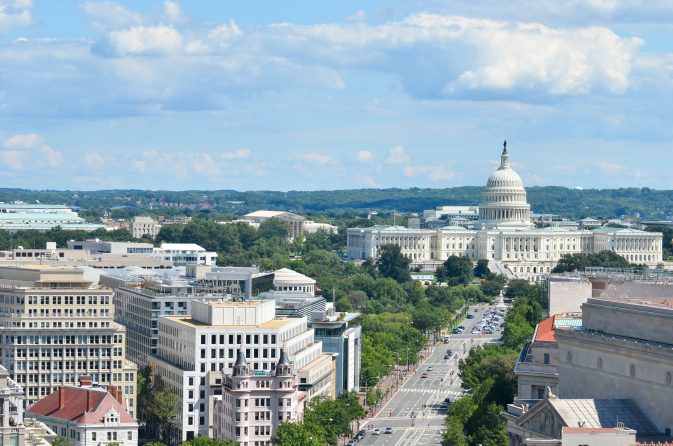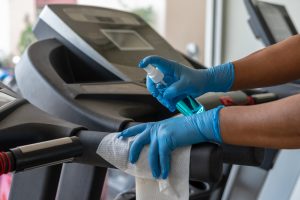What federal government must do to assist small business in the recovery

The federal government is working behind the scenes with the business community in Florida, and across the country, to donate masks to help keep employees safe and spur reopenings. Surgeon General Jerome Adams visited Sergios in Miami last month to announce the distribution of one million masks to restaurants in Florida.
This initiative between the Department of Health and Human Services and the Florida Restaurant and Lodging Association is one example of the public private partnerships needed to restore the country to its position before the pandemic. The economy shrank by over 32 percent in the second quarter due to the coronavirus, and the unemployment rate is at 10 percent, according to recent government data.
To help small businesses pull the country out of this recession, the federal government must make an unwavering commitment to passing liability protections for employers so they can reopen with confidence. While the latest stimulus deal is stalled in Congress, lawmakers should make a public commitment that any forthcoming bill includes liability protections as a condition of passage.
Small businesses already face significant hurdles to reopening, trying to balance public health orders, employee and customer safety, and profitability. Ruinous lawsuits from greedy trial lawyers for claims related to the pandemic will prevent some small firms from reopening their doors. In the broader coronavirus relief package proposal known as the Heals Act, Republicans have proposed liability protection prohibiting lawsuits against businesses that follow health guidelines but permitting them in cases of gross negligence. This approach strikes the right balance.
According to Hunton Andrews Kurth, there have been more than 3,000 lawsuits related to the pandemic filed across the country, showing that liability protections are necessary. Some states have passed such provisions to accelerate the recovery, but legislation is needed on a national scale. Senate Majority Leader Mitch McConnell seems to agree. “There is no chance of the country getting back to normal without it,” he said. “We are not going to let trial lawyers throw a party on the backs of the frontline workers and institutions.”
While Congress is stuck over its next relief package, the federal government is doing what it can through executive order. President Trump has deferred the employee portion of the payroll tax for employees earning less than $104,000 a year. This relief rewards employees for returning to work. It allows them to keep more of their checks to pay their bills and shop in their communities. For most employees, the payroll tax is the biggest tax burden they face, so suspending it will provide real relief when it is needed most.
This tax deferral also assists employers, which are having difficulty rehiring their staff members, many of whom can earn more from supplemental unemployment benefits than returning to work. The tax break incentives employees to return, helping employers ramp up as the country reopens. President Trump extended unemployment benefits, but at a lower rate, so work looks comparatively more attractive.
As the initiative between the federal government and the business community in Florida and the administration demonstrate, Washington plays a role in the economic recovery led by small businesses. Congress can further accelerate this by passing coronavirus liability protections and forgiving the payroll tax liability the executive order suspends. Yet only small businesses, the greatest economic growth force in the world, can restore the country to its former success.
Carlos Gazitua serves as president and chief executive officer of Sergios Restaurants in Florida and member of the Job Creators Network. Alfredo Ortiz is president and chief executive officer of the Job Creators Network.





